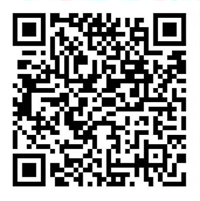1. 答题前,考生须在试题册指定位置上填写考生编号和考生姓名;在答题卡指定位置上填写报考单位、考生姓名和考生编号,并涂写考生编号信息点。
2. 选择题的答案必须涂写在答题卡相应题号的选项上,非选择题的答案必须书写在答题纸指定位置的边框区域内,写在其它地方无效。
3. 填(书)写部分必须使用黑色字迹签字笔或钢笔书写,涂写部分必须使用2B铅笔填涂。
4. 考试结束,将答题卡和试题册一并装入试题袋中交回。
Section Ⅰ Use of English
Directions: Read the following text. Choose the best word(s) for each numbered blank and mark A, B, C or D on the ANSWER SHEET. (10 points)If you are a recent college graduate, chances are you have taken several classes that you believe will help prepare you for your first job. __1__, most of what you need to succeed in your work involves skills you never took a class to acquire. And that can __2__ the application process.
When you look at the __3__ for entry-level jobs, many of the items on the list may be things you have not yet __4__. __5__ when your new job involves technical skills that were __6__ in your classes, your future employer will likely use tools you haven’t seen before and rely on processes that go __7__ what you studied.
However, and this is important, just __8__ you don’t have all of the qualifications doesn’t mean you shouldn’t apply for that job. Organizations __9__ people who are new to a role (and particularly people who are new to a firm) to __10__ the position. They want new hires to ask a lot of questions, to seek out mentoring, and to even make a few mistakes __11__ they get acclimated to a role. That means that you should look for positions that will __12__ you, not ones where you can already tick all the __13__.
Unfortunately, many people (particularly women) focus on __14__ jobs for which they are already overly qualified. There are __15__ to doing this: they will “hit the ground running”, which often makes an employer happy and can __16__ the person’s self-confidence. __17__ it’s unlikely the job will lead to much growth and being __18__ in a role can make it hard to transition to the next position. __19__ an upward track in the workplace requires consistent acquisition of the set of skills needed to take on the next position. Learning these skills when you’re in a position for which you are overqualified will require that you learn “off the clock” __20__ incorporating learning into the daily performance of your job.
| 1. A. Admittedly | B. Consequently | C. Unfortunately | D. Undoubtedly |
| 2. A. complicate | B. simplify | C. compensate | D. distinguish |
| 3. A. regulations | B. qualifications | C. implications | D. foundations |
| 4. A. intervened | B. misunderstood | C. reproached | D. encountered |
| 5. A. Even | B. Still | C.Yet | D. Only |
| 6. A. shared | B. assigned | C. covered | D. dismissed |
| 7. A. after | B. beyond | C. on | D. behind |
| 8. A. before | B. unless | C. until | D. because |
| 9. A. expect | B. grant | C. how | D. promise |
| 10. A. get into | B. go after | C. grow into | D. look over |
| 11. A. as | B. if | C. unless | D. until |
| 12. A. address | B. appeal | C. strike | D. stretch |
| 13. A. boxes | B. rules | C. doors | D. bags |
| 14. A. decent | B. steady | C. potential | D. tough |
| 15. A. downsides | B. upsides | C. threats | D. chances |
| 16. A. boost | B. impair | C. aggravate | D. reflect |
| 17. A. Hence | B. Even | C. But | D. And |
| 18. A. influential | B. predominant | C. inferior | D. stagnant |
| 19. A. In turn | B. In return | C. In particular | D. In consequence |
| 20. A. According to | B. rather than | C. regardless of | D. along with |
Section Ⅱ Reading Comprehension
Part A
Directions: Read the following four texts. Answer the questions below each text by choosing A, B, C or D. Mark your answers on the ANSWER SHEET. (40 points)Text 1
The findings come as a follow-up to a study done three years ago, in which a group of distinguished exercise scientists scrutinized data from a large trove of medical and fitness tests conducted at the Cooper Institute in Dallas. That analysis found that as little as five minutes of daily running was associated with prolonged life spans.
After that study was released, the researchers were inundated with queries from fellow scientists and the general public, says Duck-chul Lee, a professor at Iowa State University and co-author of the study. Some people asked if other activities, such as walking, were likely to be as beneficial as running for reducing mortality risks.
High-mileage runners wondered if they could be doing too much, and if at some undefined number of miles or hours, running might become counterproductive and even contribute to premature mortality.
And a few people questioned whether running really added materially to people’s life spans. Could it be, they asked rather hastily, that if in order to reduce your risk of dying by a year, you had to spend the equivalent of a year’s worth of time on the trails or track, producing no discernible net gain?
So for the new study, which was published in March in Progress in Cardiovascular Disease, Lee and his colleagues set out to address those and related issues by reanalyzing data from the Cooper Institute and also examining results from a number of other large-scale recent studies looking into the associations between exercise and mortality.
Over all, this new review reinforced the findings of the earlier research, the scientists determined. Cumulatively, the data indicated that running, whatever someone’s pace or mileage, dropped a person’s risk of premature death by almost 40%, a benefit that held true even when the researchers controlled for smoking, drinking and a history of health problems such as hypertension or obesity.
21. It is implied in Paragraph 1 that runners ______.
[A] often run slowly or occasionally
[B] may live a life that is a little longer than the non-runners
[C] are fond of drinking or smoking
[D] can live a healthy life
22. The analysis of the medical and fitness tests showed that ______.
[A] daily running played an important role in prolonging life spans
[B] five minutes’ daily running was totally enough in prolonging life spans
[C] daily running could not reduce mortality risks
[D] daily running might enhance people’s sense of happiness
23. The following aspects are the reasons why the researchers were inundated with queries EXCEPT that ______.
[A] some people wondered if walking was likely to be as good as running
[B] high-mileage runners doubted whether running might lead to premature death
[C]a few people questioned whether running really added materially to people’s life spans
[D] some people asked calmly whether it is worthwhile to spend the whole year on running
24. According to the passage, the new review indicated that ______.
[A] findings of the earlier research were wrong
[B] running could not necessarily lower a person’s risk of premature death
[C] running was beneficial to people’s health
[D] people with smoking, drinking and other health problems are not mentioned to run
25. The author’s attitude toward running is ______.
[A] indifferent
[B] skeptical
[C] objective
[D] uncertain
Birth order has a great influence on child development, specifically because parents tend to raise each sibling differently — which can be both good and bad. But read on before you go blaming your parents.
Eldest children tend to be ambitious, driven leaders. “The firstborn gets a lot of focus and attention as there are no other children for distraction,” says child and family therapist Meri Wallace, author of Birth Order Blues. “The child can get lots of teaching, and so can grow up to feel self-confident and strong enough to be a leader.”
Much research, including a recent study from The University of Edinburgh, shows that oldest children tend to have higher IQs than subsequent children. This could be because parents provide more mental stimulation to their firstborn. “The time that parents have available to read to their first child, to explain things, is greater,” says Wallace.
As for the middle children, because the middle child is doing everything the eldest child has done before, they may feel lost. “The middle child doesn’t have a clear identity,” says Wallace. Even so, the constant companionship of siblings could be the reason middle children are less likely to be diagnosed with emotional disorders, according to a 2018 study from Spain. And having to find their own niche can often lead the middle child to branch out into other areas and become more creative, without the parental expectations eldest children face. “It is true that middle children are squeezed, but they are great negotiators and compromisers because they have been called upon their entire lives to do so,” says Campbell.
Their people skills were evidenced in a study showing middles do better in group situations than oldest or youngest children. “The middle child tends to know how to get along with people and calm a situation down — they can understand things from both angles,” says Wallace.
We think of the baby of the family as holding a special place in their parents’ hearts, and while that may be true, it’s not because their parents give them more attention. In fact, they can often end up feeling left out. “The youngest can be cute because of ‘forever being the baby’, but manipulative because the family doesn’t take the youngest seriously,” says Campbell. To an even greater extent than middle children, youngest siblings have to find a way to blaze their own trail, as evidenced by a study from the UK that showed lastborns were most likely to become entrepreneurs.
26. Of all the following statements, which one is true?
[A] The youngest are most creative.
[B] The oldest children are likely to be leaders because they are aggressive.
[C]The middle children often feel lonely.
[D] The middle children do worse than other siblings in groups.
27. According to the author, ______ can most likely be an entrepreneur.
[A] the eldest child. [B] middle child. [C] the youngest one. [D] the adult.
28. According to Wallace, why are the oldest smarter than the subsequent?
[A] Because they get more nutrient than siblings.
[B] Because they are born smarter.
[C] Because parents provide more material support.
[D] Because parents are prone to give them more brain exercise.
29. Why the middle children are less likely to be diagnosed with emotional disorders, according to the study from Spain in 2018?
[A] Because parents caress.
[B] Due to genetics.
[C] Because they are steadily accompanied by other children in family.
[D] Because they are optimistic.
30. Which can be the best title for the passage?
[A] Birth Order Decides Who You Are.
[B] What Your Birth Order Really Tells about You
[C] Birth Order Controls Child’s Development.
[D] Birth Order Make No Sense of Who You Are.
MPs are to investigate the environmental impact of throwaway“fast fashion" in the UK amid growing concerns that the multi-billion pound industry is wasting valuable resources and contributing to climate change. The inquiry, launched on Friday by the House of Commons environmental audit committee, will explore the carbon impact, resource use and water footprint of clothing throughout its lifecycle and supply chain.
Inviting evidence on how the influential sector should remodel itself to be both“thriving and sustainable”, it will look at how improved recycling rates of clothing could slash waste and pollution. “Fashion shouldn’t cost the Earth,” said Mary Creagh MP, chair of the committee. “But the way we design, make and discard clothes has a huge environmental impact. Producing clothes requires climate-changing emissions. Every time we put on a wash, thousands of plastic fibres wash down the drain into the oceans. We don’t know where or how to recycle end-of-life clothing.”
Despite recent troubles on the UK high street, the fashion sector has continued to grow. According to the British Fashion Council, the UK fashion industry contributed £28.1bn to national GDP in 2015, up from £21bn in 2009. But the globalized market for fashion manufacturing has facilitated a“fast fashion”phenomenon; a proliferation of cheap and cheerful clothing, with quick turnover that encourages consumers to keep buying, the committee warns.
The raw materials used to manufacture clothes require land and water, or extraction of fossil fuels, while carbon dioxide is emitted throughout the clothing supply chain and some chemical dyes, finishes and coatings may be toxic. Research has found that plastic microfibres in clothing are released when they are washed, and enter rivers, the ocean and even the food chain.
Last year the fashion designer Stella McCartney condemned her own industry as “incredibly wasteful and harmful to the environment.” A report from the Ellen MacArthur Foundation put the annual cost to the UK economy of land-filling clothing and household textiles at about £82m. It warned that if the global fashion industry continues on its current growth path, it could use more than a quarter of the world’s annual carbon budget by 2050.
Key to the inquiry is how consumers could be encouraged to buy fewer clothes, reuse clothes and think about how best to dispose of clothes when they are no longer wanted. An estimated 300,000 tonnes of fashion waste goes straight into landfill each year, despite growing efforts to encourage consumers to recycle their worn and unwanted clothing.
31. We can learn that the“fast industry" in UK is characterized by ______.
[A] disposable [B] worrisome
[C] declining [D] prosperous
32. The word “slash” (Para. 2) most probably means ______.
[A] influence [B] indulge
[C] relieve [D] eliminate
33. Which of the following features is odd about the“fast fashion” phenomenon?
[A] Low price. [B] High sales.
[C] Happy feeling. [D] Speedy update.
34. The inquiry launched by the House of Commons mainly focus on ______.
[A] curbing the “fast industry” phenomenon
[B] handling the used clothes properly
[C] recycling the old clothes as many as possible
[D] wearing the clothes as long as possible
35. The most suitable title for this text would be ______.
[A] MPs to Encourage Recycle of Used Clothes
[B] MPs to Explain the “Fast Fashion” Phenomenon
[C] MPs to Illustrate the Environmental Issues Caused by Clothes
[D] MPs to Examine Environmental Footprint of UK Fashion Industry
Text 4
Large gatherings such as weddings and conferences can be socially overwhelming. Pressure to learn people’s names only adds to the stress. A new facial-recognition app could come to the rescue — but privacy experts recommend proceeding with caution.
The app, called Social Recall, connects names with faces via smartphone cameras and facial recognition, potentially eliminating the need for formal introductions. “It breaks down these social barriers we all have in terms of initiating the protocol to meet somebody,” says Barry Sandrew, whose start-up, also called Social Recall, created the app and tested it at an event attended by about 1,000 people.
After receiving an invitation to download Social Recall from an event organizer, a prospective user is asked to take two selfies and sign in via social media. At the event, the app is active within a previously defined geographical area. When a user points his or her phone camera at an attendee’s face, the app identifies the individual, displays the person’s name, and links to his or her social media profile. To protect privacy, it recognizes only those who have assented to participate. And the app’s creators say it automatically wipes users’ data after an event.
Ann Cavoukian, a privacy expert who runs the Privacy by Design Center of Excellence at Ryerson University in Toronto, commends the app’s creators for these protective measures. She adds, however, that when people choose to share their personal information with the app, they should know that “there may be unintended consequences down the road with that information being used in another context that might come back to bite you.”
The start-up has also developed a version of the app for individuals who suffer from prosopagnosia, or “face blindness”, a condition that prevents people from recognizing individuals they have met. To use this app, a person first acquires an image of someone’s face, from either the smart-phone’s camera or a photograph, and then tags it with a name. When the camera spots that same face in real life, the previously entered information is displayed. The collected data are stored only on a user’s phone, according to the team behind the app.
Jason Schultz, a professor of clinical law at New York University, who was not involved with the app’s creation, remains wary:“The cost to everyone whom you are surveilling with this app is very, very high, and I don’t think it respects the consent politics involved with capturing people’s images.”
36. According to the first two paragraphs, we may learn that the Social Recall ______.
[A] applies only to large gatherings
[B] reduces users’ social pressure
[C] helps to remember names faster
[D] breaks up all social barriers
37. The word “assented” (Para. 3) most probably means ______.
[A] forced [B] rejected
[C] obliged [D] consented
38. Ann Cavoukian’s attitude toward sharing personal data with apps is one of ______.
[A] favorable [B] biased
[C] neutral [D] cautious
39. According to Jason Schultz, the app may ______.
[A] violate ethical standards
[B] cost users a lot of money
[C] cause unnecessary spending
[D] bring about legal matters
40. The most suitable title for this text would be ______.
[A] New App Helps People Remember Faces
[B] New App Could Help Those with Face Blindness
[C] An App Raises Concerns Among Privacy Experts
[D] A New App to Reduce Social Stress Among the Public
Part B
For centuries, philosophers and theologians have almost unanimously held that civilization as we know it depends on a widespread belief in free will — and that losing this belief could be calamitous. Our codes of ethics, for example, assume that we can freely choose between right and wrong. In the Christian tradition, this is known as “moral liberty” — the capacity to discern and pursue the good, instead of merely being compelled by appetites and desires. The great Enlightenment philosopher Immanuel Kant reaffirmed this link between freedom and goodness. If we are not free to choose, he argued, then it would make no sense to say we ought to choose the path of righteousness.
The sciences have grown steadily bolder in their claim that all human behavior can be explained through the clockwork laws of cause and effect. This shift in perception is the continuation of an intellectual revolution that began about 150 years ago, when Charles Darwin first published On the Origin of Species. Shortly after Darwin put forth his theory of evolution, his cousin Sir Francis Galton began to draw out the implications: If we have evolved, then mental faculties like intelligence must be hereditary. But we use those faculties — which some people have to a greater degree than others — to make decisions. So our ability to choose our fate is not free, but depends on our biological inheritance.
Many scientists say that the American physiologist Benjamin Libet demonstrated in the 1980s that we have no free will. It was already known that electrical activity builds up in a person’s brain before she, for example, moves her hand; Libet showed that this buildup occurs before the person consciously makes a decision to move. The conscious experience of deciding to act, which we usually associate with free will, appears to be an add-on, a post hoc reconstruction of events that occurs after the brain has already set the act in motion.
In 2012, two psychologists had a simple but brilliant idea: Instead of speculating about what might happen if people lost belief in their capacity to choose, they could run an experiment to find out. Kathleen Vohs, then at the University of Utah, and Jonathan Schooler, of the University of Pittsburgh, asked one group of participants to read a passage arguing that free will was an illusion, and another group to read a passage that was neutral on the topic. Then they subjected the members of each group to a variety of temptations and observed their behavior. Would differences in abstract philosophical beliefs influence people’s decisions?
Yes, indeed. When asked to take a math test, with cheating made easy, the group primed to see free will as illusory proved more likely to take an illicit peek at the answers. When given an opportunity to steal — to take more money than they were due from an envelope of $1 coins — those whose belief in free will had been undermined pilfered more. On a range of measures, Vohs told me, she and Schooler found that “people who are induced to believe less in free will are more likely to behave immorally.”
Another pioneer of research into the psychology of free will, Roy Baumeister of Florida State University, has extended these findings. For example, he and colleagues found that students with a weaker belief in free will were less likely to volunteer their time to help a classmate than were those whose belief in free will was stronger. Likewise, those primed to hold a deterministic view by reading statements like “Science has demonstrated that free will is an illusion” were less likely to give money to a homeless person or lend someone a cellphone.
| A. concluded that the illusion of free will can stimulate the development of society. | |
| 41. Kathleen Vohs | B. demonstrated that extra meaning of freedom was attached to some actions. |
| 42. Sir Francis Galton | C. reassured the status of freedom as the foundation of justice. |
| 43. Immanuel Kant | D. further improved that humans with less sense of free will were less likely to help others. |
| 44. Roy Baumeister | E. believed our ability to be free was derived from ancestors. |
| 45. Benjamin Libet | F. recognized many crimes were controlled by brains which were decided by genes. |
| G. found that people who believe less in free will are more likely to be unethical. |
Section Ⅲ Translation
Whenever you make an overly general statement about another person or about yourself, you are likely to be distorting the facts and conveying very little useful information.
This is because most generalizations fail to differentiate between states and traits. A state is a temporary way of being while a trait tends to be a more stable and enduring characteristic or pattern of behavior. So, someone with a character trait of calmness and composure can, under certain circumstances, act agitated and angry because of being in a temporary state that is quite uncharacteristic of his regular style.
Hence, “You are selfish” is vague generalization. Indeed, “You are selfish” implies that the person almost always makes inconsiderate or self-centered choices that disregard the needs and wishes of others. But an occasional selfish act does not make someone selfish across the board because even a very generous person can occasionally be in a state during which he is anything but generous.
Section Ⅳ Writing
Part A
Suppose your university is going to host an international conference on public health. Write a notice to:
1) briefly introduce the conference, and
2) call for volunteers.
You should write about 100 words on ANSWER SHETE.
Do not sign your own name at the end of the letter, use “Li Ming” instead.
Do not write the address. (10 points)
Part B
Write an essay based on the chart below. In your writing , you should
1) interpret the chart, and
2) give your comments
You should write about 150 words on the ANSWER SHEET. (15 points)















